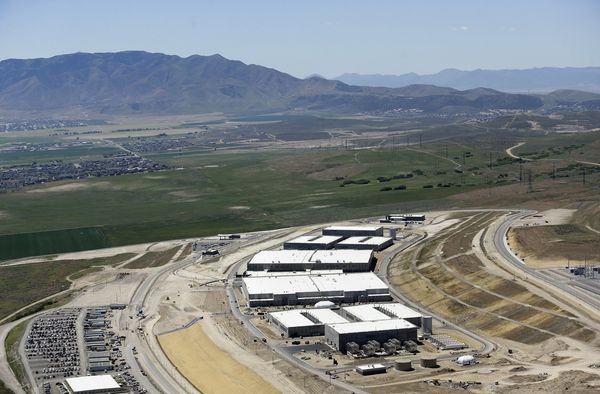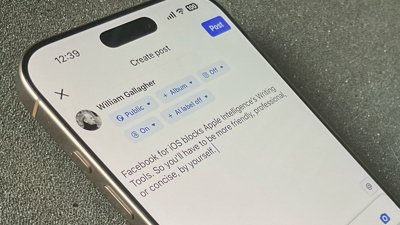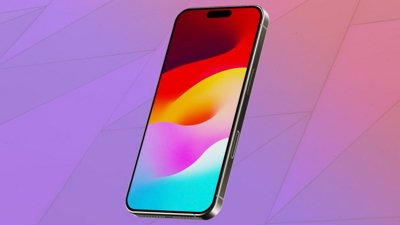The National Security Agency's collection of phone metadata will be allowed to continue during the 180-day wind-down period authorized by Congress in June, a U.S. appeals court ruled on Thursday.
The 2nd U.S. Circuit Court of Appeals in New York struck down a preliminary injunction sought by the American Civil Liberties Union, which would have halted the mass surveillance program immediately, Reuters said. The injunction was opposed by the U.S. Department of Justice.
As a result of today's decision, legal limits on the NSA will only take effect on Nov. 29, as planned.
"An abrupt end to the program would be contrary to the public interest in effective surveillance of terrorist threats, and Congress thus provided a 180-day transition period," wrote Circuit Judge Gerard Lynch. "Under the circumstances, we will defer to that reasonable decision."
Lynch was responsible for authoring a May decision which found the metadata collection illegal. The next month Congress passed the USA Freedom Act, enabling the upcoming restrictions on the NSA, though critics have complained that the bill didn't go far enough in limiting surveillance.
In 2013, former NSA contractor Edward Snowden leaked documents to The Guardian proving that the agency was collecting massive amounts of data in the U.S. and abroad, sweeping up phone records and Internet traffic from innocent people and suspected terrorists alike. In many cases the NSA benefited from collusion by carriers like AT&T and Verizon, as well as major U.S. tech companies.
Apple was named as an NSA target in the Snowden documents, although it quickly denied knowledge of the PRISM program or providing direct access to servers. Since then, the company is known to have at least complied with NSA requests for data, as evidenced by so-called "warrant canaries" disappearing from its transparency reports.
 Roger Fingas
Roger Fingas


 William Gallagher
William Gallagher

 Andrew O'Hara
Andrew O'Hara
 Wesley Hilliard
Wesley Hilliard

 Malcolm Owen
Malcolm Owen
 Marko Zivkovic
Marko Zivkovic





-m.jpg)




7 Comments
These spying schemes have nothing to do with terrorists or criminals and never have. The shere scale of them shows this. Logic dictates that the most common subject spied upon is the intended target, and that's ordinary civilians. This should be glaringly obvious. Terrorists and criminals are rarely considered a threat to a state (although they are of course presented as such), but its civilians are. So states have always wanted to know what their subjects were thinking and whether any threats could emerge from that. States of old try to suppress freedom of expression so ideas can not reach critical mass. When that doesn't work anymore, they switch to managing freedom of expression. When that doesn't work anymore, they switch to managing people's ability to come to an informed opinion. In order to be able to do that you have to know what people think in detail. In this day and age that means Big Data to the rescue! Before 9/11 some safeguards still existed here and there against wholesale spying on the population, but 9/11 gave the states the opportunity to negate those safeguards. And of course the size of the operations had to come out at some point. If Ed Snowden hadn't exposed what he found somebody else would have. There are just too many people involved. So I applaud Tim Cook for his stance on encryption, and I'll stick with Apple for that.
Think of all the domestic events including the school shootings and things like Boston that were missed. This despite this massive dragnet on all communications. The few cases they have caught have almost all turned out to be cases where agents actively helped or enabled the suspects before arresting them. That sounds more like enticement and not very much like law enforcement. The bottom line is that open societies are by nature vulnerable to a certain amount of lone wolf and organized violence. Do we really want to cash in our privacy for the illusion of security?
Guess what if the US just did a little due diligence on those coming into this country they could have stop the really bad terrorist. One thing Trump said which is true, if we are tought on people trying to get into and staying in the US illegally or for the wrong reasons we would be much safer. Can not stop the home grown issue, but, if they just pay attention to the unstable individual that would solve the balance of the problem.
However, in our government typical fashion their solution was far worst than the problem. They focus on collecting phone records and thought that would detect the bad people amoung all the good people. It was kind of like the 6 degrees of Kevin Bacon game, if have a bad guy and can trace them back to Kevin Bacon they are a terrorist.
"What you're doing is illegal... but you can keep doing it for 180 days." WTF.
Its a major study for the world order.